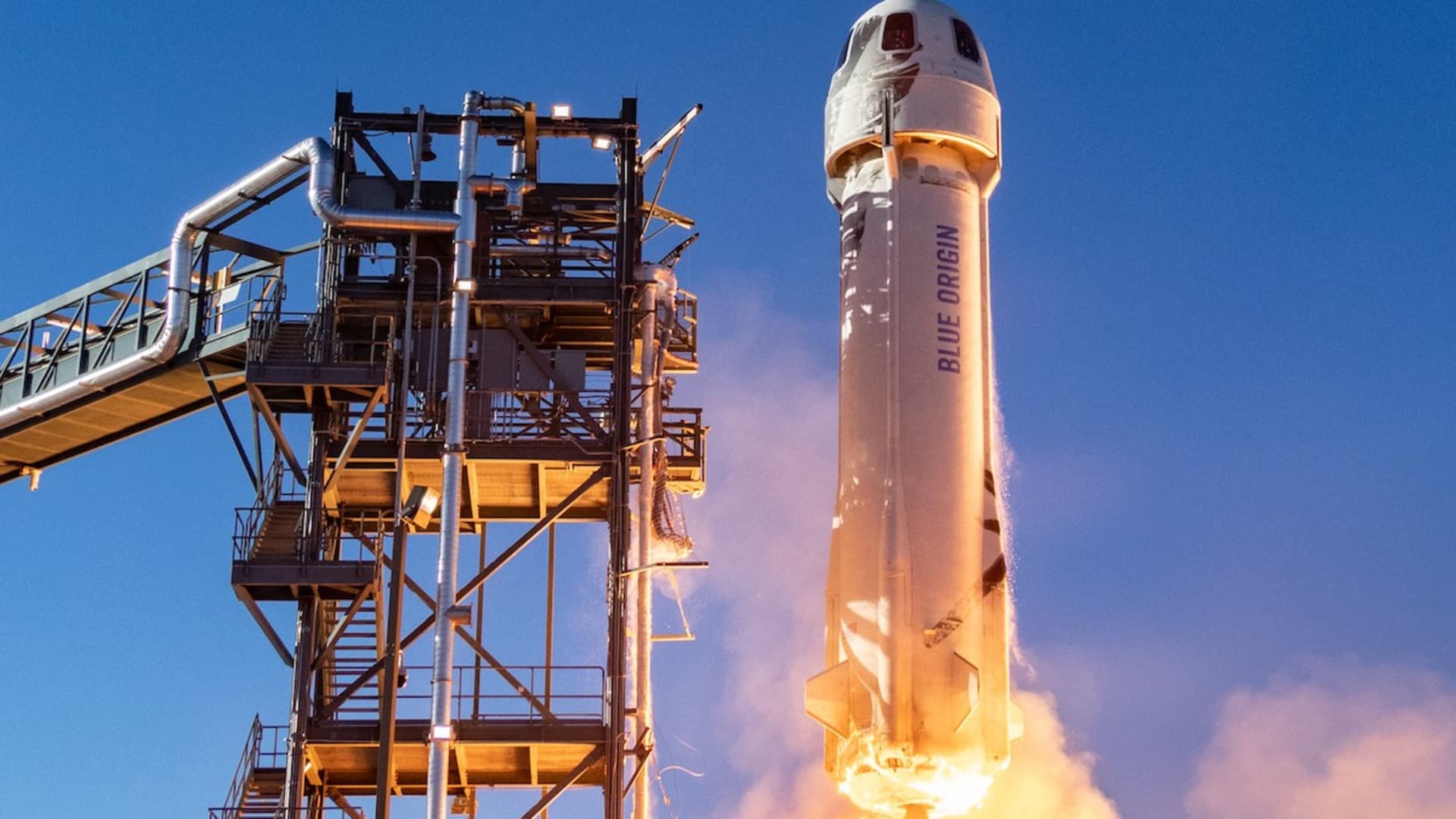
Witness the Thrill: Jeff Bezos' Blue Origin Rocket Soars from Florida's Coastline
A Triumph of Innovation and a Journey into Space
On July 20, 2021, the eyes of the world turned to Florida's Space Coast as Jeff Bezos, founder of Amazon, embarked on a historic flight into space aboard his company's New Shepard rocket. The launch marked a significant milestone in the commercialization of space travel and showcased the technological advancements made by Blue Origin.
The Flight and Its Significance
The New Shepard rocket lifted off from the company's Launch Site One in West Texas, carrying a crew of four, including Bezos, his brother Mark, Wally Funk, an 82-year-old aviation pioneer, and Oliver Daemen, an 18-year-old Dutch student. The capsule reached an altitude of approximately 66.5 miles (107 kilometers) before successfully returning to Earth.
This flight was a crucial step for Blue Origin, demonstrating the capabilities of its reusable rocket and capsule system. It also marked the first time that a private company had launched a crewed spacecraft beyond the Earth's atmosphere.
Perspectives and Reactions
The flight garnered a range of reactions from the public and experts. Some hailed it as a triumph of innovation and a significant step toward making space travel accessible to a wider audience. Others expressed concerns about the environmental impact of space exploration and the potential for a space race among wealthy individuals.
Supporters argue that the commercialization of space will drive down costs, foster competition, and stimulate the development of new technologies. They believe that it will ultimately benefit society by opening up access to space for scientific research, resource exploration, and tourism.
Critics, on the other hand, argue that space exploration should be a government priority, not a private endeavor. They point to the high cost of space travel and the limited benefits that it currently provides to the general public. Additionally, they express concerns about the potential for space debris and the exploitation of other celestial bodies.
Environmental Considerations
The environmental impact of space exploration has been a topic of ongoing debate. Rockets emit greenhouse gases and contribute to air pollution. Additionally, the mining of resources from other planets could have detrimental effects on their environments.
Blue Origin has taken steps to mitigate the environmental impact of its operations. The New Shepard rocket uses a low-carbon fuel and is designed to be reusable. The company is also investing in research to develop more sustainable propulsion systems.
The Future of Space Travel
The success of Blue Origin's flight has raised questions about the future of space travel. It is likely that private companies will continue to play a growing role in the sector, offering a range of services, from satellite launches to space tourism.
Governments will also continue to be involved in space exploration, focusing on scientific research and international cooperation. The development of reusable rockets and other advanced technologies will make it possible to reduce the costs of space travel and expand our reach into the solar system.
Conclusion
Jeff Bezos' Blue Origin rocket launch was a remarkable achievement that demonstrated the transformative power of innovation. It marked a significant step toward the commercialization of space travel and raised important questions about the future of space exploration.
While concerns about the environmental impact and the role of private companies in space travel remain valid, it is clear that the commercialization of space has the potential to drive innovation, advance scientific research, and expand our access to the vastness of the cosmos.